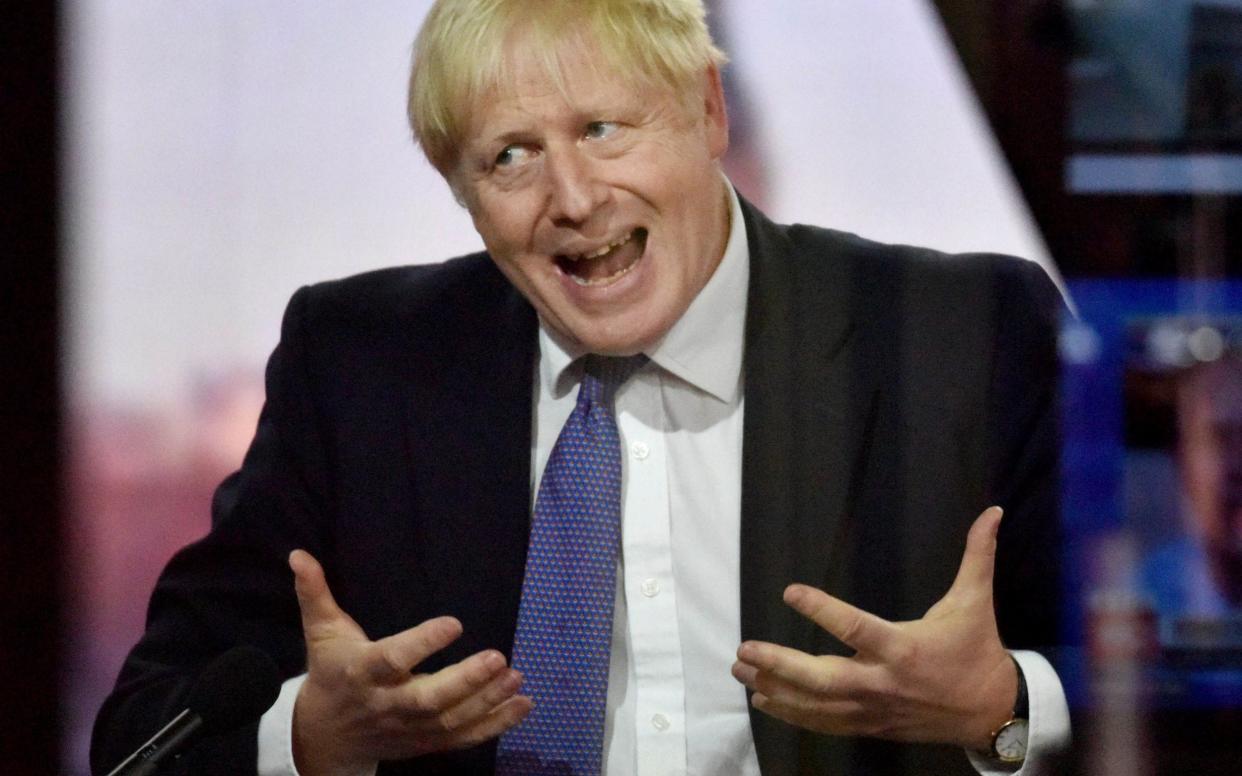Boris Johnson insists he is not helping the SNP break up the Union

Boris Johnson has insisted he was not helping the SNP break up the Union as the Scottish Tory leader challenged his English colleagues to "look in the mirror" and prove they are doing enough to bolster it.
The Prime Minister said that Douglas Ross was "talking about those who don't value the Union in the way I do" when he criticised some English Tories and Cabinet ministers over their "defeatism and disinterest."
Speaking as the Conservatives held their virtual party conference, he denied his style of leadership combined with his Brexit policy was driving Scotland and England apart.
Mr Johnson also echoed his predecessor, Theresa May, by stating that "this is not the time" for another independence referendum, even if the SNP wins a majority in next year's Holyrood election.
The Prime Minister argued that the country should instead focus on recovering from the coronavirus pandemic and reiterated that Nicola Sturgeon had promised the 2014 vote was a once-in-a-generation event.

His intervention came after Mr Ross used a controversial speech to a Scottish Tory fringe event on Saturday to warn that Conservative "representatives" in England - including "some of those governing our country" - must stop playing into SNP hands.
Although Tory sources said his outspoken intervention was not aimed at one individual, it was seen as a veiled criticism of Boris Johnson, who named himself Minister for the Union when he entered 10 Downing Street.
In a direct message to "colleagues annoyed" at his speech, an unrepentant Mr Ross said yesterday: "Take a look in the mirror and answer the question I posed – which side are you on?
“If I’m wrong about the defeatism and disinterest in the Union, then prove it. Let’s hear that the Union comes first."
The Moray MP also rejected that it was a "foregone conclusion" that Scotland will become independent despite polls indicating the SNP is on course for a landslide victory in May's Holyrood election, which Ms Sturgeon intends to use as a mandate for another referendum.
So, let’s put an end to defeatism and disinterest.
Let’s instead recognise the positive impact of the Union on all our lives. #CPC20 pic.twitter.com/CPSvYMLkqx— Douglas Ross MP (@Douglas4Moray) October 3, 2020
Asked whether Mr Ross was criticising him, the Prime Minister told the BBC's Andrew Marr: “I think he was talking about those who don’t value the Union in the way that I do.
"I think that the Union is one of the great achievements of this country, and its value, its use has been amply demonstrated through this crisis, not just in the way the armed services have helped deliver the tests around the coutnry but the financial support which has been delivered by HMT (Treasury).”
Rejecting accusations that Brexit is helping Ms Sturgeon achieve separation, he said that it was a “huge opportunity” for Scotland and the controversial Internal Market Bill “involved the devolution of substantial powers to Scotland, not least over fish”.
He added: “It’s incredible to me the Scottish Nationalist Party (sic) should actually be supporting a policy of handing back fisheries to Brussels, abandoning the future prospects of young people growing up in Scotland.”
But John Swinney, the Deputy First Minister, told BBC Scotland's Sunday Politics programme: "Boris Johnson will change his tune once we get that majority because nobody can stand in the way of the democratic wishes of Scotland and Boris Johnson will not be able to sustain that position for a moment."
Mr Ross yesterday said the Prime Minister was "a strong supporter of the United Kingdom" but he would "also accept that his government and successive governments have not done enough to strengthen the case for the Union."
Pressed on Mr Johnson's poor approval ratings in Scotland, he told Sky News's Sophy Ridge "a 300-year political and economic partnership that has served Scotland and the UK well, doesn’t rest on whether one individual is popular or not."

